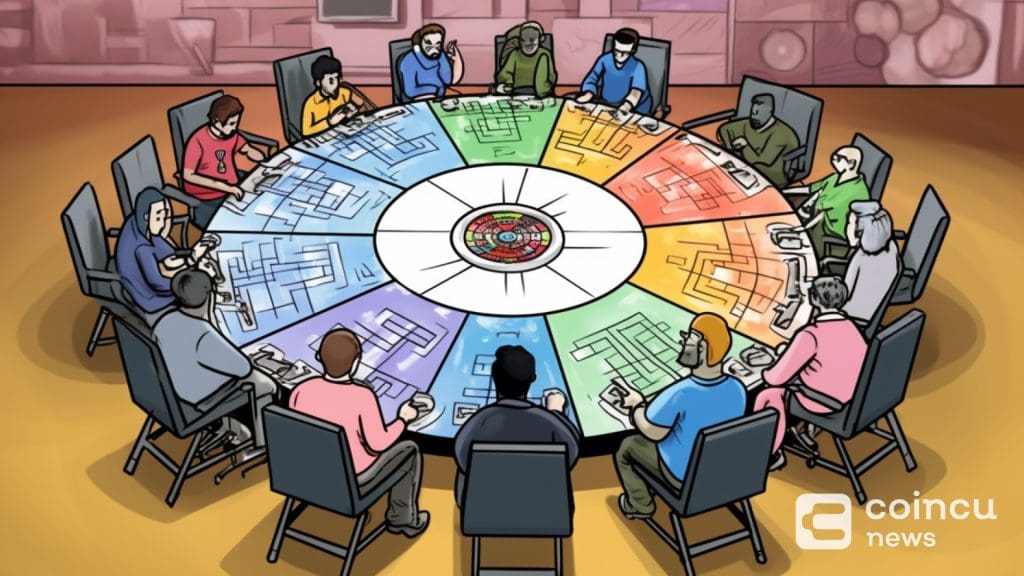FIT21 Bill’s Senate Journey: What It Means for XRP’s Decentralized Status
The post FIT21 Bill’s Senate Journey: What It Means for XRP’s Decentralized Status appeared first on Coinpedia Fintech News
As the FIT21 Bill moves to the Senate after garnering overwhelming bipartisan support in the House, many wonder how this legislation would, or even could, affect the classification and regulation of XRP, particularly on issues of its decentralized status.
Bill Morgan’s Take on XRP and the FIT21 Bill
As the crypto community celebrates the successful passing of the FIT21 Bill in the House of Representatives, a community member claimed that XRP would “NOT” be considered “decentralized” under the new Act if enacted.
In response, XRP Lawyer Bill Morgan, who has been vocal about the implications the FIT21 Bill would have on XRP since the very beginning, wrote that the new legislation would not retroactively affect XRP’s status.
He highlighted on X: “The legislation is not retrospective. The court already found the token itself is not a security. The SEC made it clear it was not going to challenge that finding. The legislation will not change that.”
This statement is important because of the July 2023 ruling, in which the court declared that XRP, in and of itself, is not considered a security. The court’s ruling was landmark, stating that the nature of a transaction, rather than the asset itself, determines if such a transaction would qualify as a security offering subject to the Howey test.
Analysis from Jeff, USAF Vet and Pro-XRP Enthusiast
USAF Vet and pro-XRP enthusiast Jeff has provided a supporting analysis against the claims that XRP would be deemed not decentralized. He argues that XRP will be clarified as decentralized. He argues that the FIT21 Bill aims at the “control of the network,” which can be found in the Proof of Stake system, as in the Ethereum blockchain.
On the other hand, XRP’s network is largely based on the Proof of Consensus network that “has ZERO to do with controlling the ‘network’ or voting rights on that network.”
Court’s Decision on XRP
The court’s move to define XRP in a transactional context rather than its innate nature is critical. The court asserted,
“XRP, as a digital token, is not in and of itself a ‘contract transaction’ or ‘scheme’ that embodies the Howey requirements of an investment contract.”
This means that while the sales of XRP to institutional investors were deemed security offerings due to the investors’ reliance on Ripple’s efforts for profit, the retail sales on secondary markets were not.
The court’s approach aligns with the broader perspective that ordinary assets like gold, silver, and commodities can, depending on the circumstances of the transaction, be components of an investment contract.
Debate on FIT21 Bill and Decentralization
FIT21 aims to establish clear regulatory clarity and robust consumer protections in the digital asset space. The bill’s emphasis on transparency, accountability, and clear regulatory demarcations between the SEC and CFTC is intended to foster innovation while safeguarding investors.
However, the legislation’s impact on classifying assets like XRP as decentralized remains debatable.
Crypto analysts have also raised concerns. Analyst Matt pointed out the potential negative impact on decentralized exchanges (DEXs), stating, “The FIT21 bill doesn’t mention DEXs specifically, but it could be bad.”
Another analyst, known as ‘Vet,’ emphasized the need for deeper scrutiny of the bill’s contents, particularly its references to “over 150 mentions of decentralization and the decentralization test described.”
Implications for XRP and the Broader Market
The passage of FIT21 is an immense step forward in bringing clarity to the regulatory environment of digital assets within the U.S. Regarding XRP, the current court ruling is already very solid—that is to say, it is not inherently security—and FIT21 is not likely to change that.
The emphasis would be on the context of transactions and not the inherent nature of the asset.
The bill moves to the Senate, where its reception and possible amendments will be closely watched. FIT21’s final form will define the regulatory framework for digital assets, affecting their development, market behavior, and mechanisms for investor protection.






